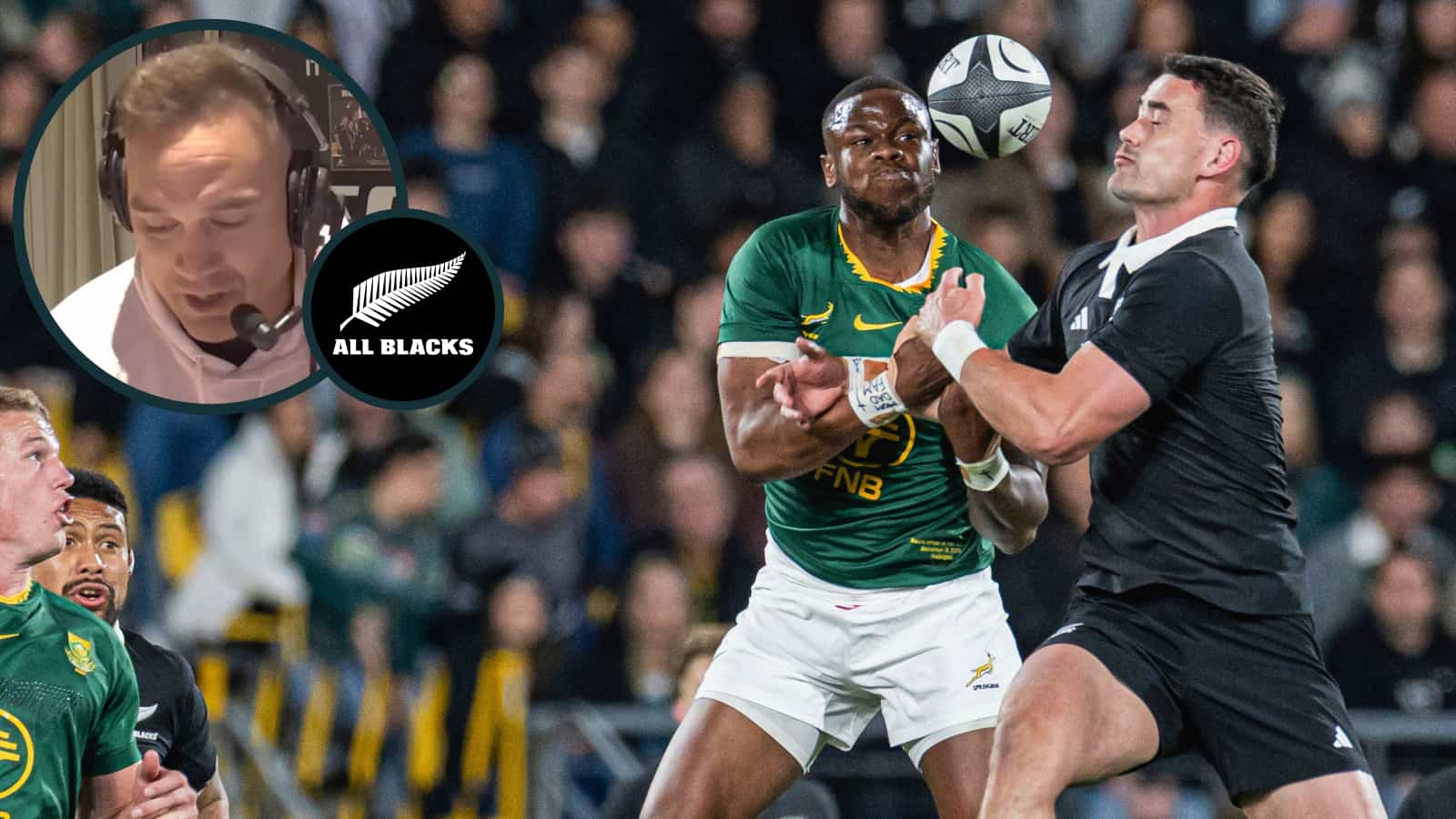All Blacks great Israel Dagg believes that there are four key areas they can improve on after they were hammered by the Springboks last weekend.
South Africa inflicted the biggest-ever defeat on New Zealand following a 43-10 triumph in Wellington in the fourth round of the Rugby Championship.
Unsurprisingly, there has been a significant backlash from the loss, with fans angry at that embarrassing home reversal.
Both players and coaches have come under fire but Dagg, who played under head honcho Scott Robertson at the Crusaders, did not want to join in.
‘Crazy but not surprising’
“Crazy but not surprising to see the reaction from some people post the All Blacks’ loss in Wellington,” he said on Sport Nation’s Scotty and Izzy show.
“I’m not going to sit here and get caught up in the carry-on asking for coaches and players to step down, and for people to be replaced.
“Instead, I want to focus on where this group could shift the dial, and some areas where we could get some improvement.”
Dagg duly picked out a few areas – or ‘solutions’ as it was described on the show – that the All Blacks need to focus on fixing, starting with the aerial game.
“High ball, there is no doubt that high ball is the most important part of the game right now. Win the air, you win the game,” the former back-three player said.
“We have struggled as of late. It is a genuine contest, there is no comparing me to the past because we had other assets and tools at our disposal, which is not the case right now.”
The ex-All Blacks star is also concerned about their counter-attacking game, something which was always a strength of the New Zealand game.
Dagg wants to see “unstructured chaos” from Robertson’s men and explained: “When I say that, it’s quick plays, counter-attack opportunities; that has always been a part of our DNA, a part of our ethos as a young kid coming up.
“There’s no doubt the game is very structured, so those counter-attacking opportunities are few and far between, but that has always been a part [of our game].
“It doesn’t have to be off a kick, it can be off a ruck turnover, it can be off a little dropped ball. Those first two or three seconds when the defence is not ready and has not been able to get into position, that is your chance for your outside backs to run some hard inside running lines.”
All Blacks running lines and kicking
That then prompted another suggestion from Dagg, who is mainly concerned about their work in attack.
“On the running lines, when was the last time we saw a 12 going up, a 13 short, a 14 out the back? Or some courageous inside shoulder running lines? Some brave, continuous running lines on a 45-degree angle. Bodies in motion and eyes-up footy.
“We are so structured in this country and we have a plan, and when we get told to do something, we kind of lose sight of our instinctual play.
“Mils Muliaina analysed the game thoroughly on the weekend. When you’re out there in the heat of the moment, you get that narrow focus and lose sight of the opportunities in front of you, and some of those clips were quite revealing.
“Yes, you have a plan leading into the game and obviously the plan was kicking the ball to space, but then there are also opportunities to move the ball.”
Dagg’s final proposal for Robertson and the All Blacks came in their “kick strategy”, which he believes has not been used well enough.
“I’m not saying we’re going to kick the ball every time. There’s a time and a place to put that chip-kick away, there’s a time and a place to kick that ball wide,” he said.
“Look at [Emoni] Narawa’s try [against the Springboks at Eden Park], a perfect example of when a kick strat comes off. Those opportunities are there, but you have to see those opportunities, you have to relay those opportunities into your 10s and give him a solution, not an idea.”
READ MORE: Rieko Ioane set for five-year first as harsh reality bites after All Blacks snub

